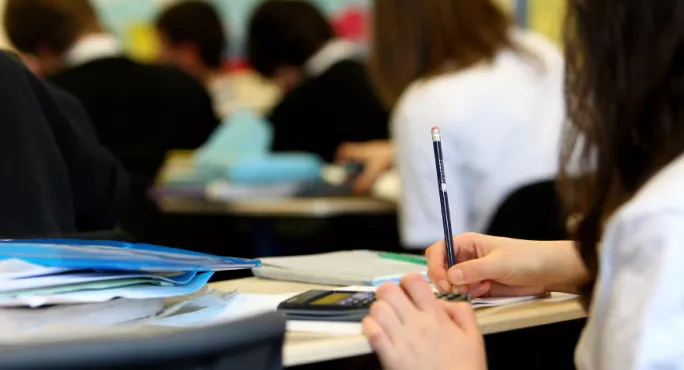- Home
- ‘No prospect’ of GCSE gap between rich and poor closing, warns damning report
‘No prospect’ of GCSE gap between rich and poor closing, warns damning report

A damning report into social mobility says there is “currently no prospect” of the grades gap between poorer children and their peers being eliminated at GCSE or A level.
The Social Mobility Commission, in its report, also warns that it would take 40 years, at current rates, to close the attainment gap at age 5. And it estimates that it would be about 120 years before poorer young people become as likely to achieve A levels or equivalent qualifications as their richer peers.
It says that two decades of government efforts have failed to deliver enough progress, and urges ministers to adopt new approaches to tackle the problems in British society.
“Whole tracts of Britain feel left behind,” Alan Milburn, chair of the commission, writes in the foreward to the report ”Time for Change”, adding: “If we go on as we have been, the divisions that have opened up in British society are likely to widen, not narrow.”
The report adds that schools in London have improved at a far faster rate than elsewhere. It states: “Schools are not yet the engines of social mobility they should be...There is currently no prospect of the gap between poor and wealthier children being eliminated at GCSE level or A level. This is totally unacceptable.”
The report analyses efforts to bridge the attainment gap between rich and poor under Tony Blair, Gordon Brown, David Cameron and Theresa May.
Researchers used a traffic light system to assess progress in improving social mobility at key stages in people’s lives - early years, school, training or further/higher education - and then into the world of work.
No stage was given a green light. Early years and schools received an amber rating, while the later “young people” and “working lives” stages received a red rating.
- In early years: the commission says it was “disappointing” that the billions invested have not had a greater impact on the attainment gap. And it adds that impending changes, such as the 30 hours of government-funded childcare, which many providers will struggle to deliver, “risk sending progress into reverse”. The report recommends doubling the early years pupil premium and more training for those working in early years.
- In schools: the commission says there had been significant progress in reducing the attainment gap at primary school, but the gap increased substantially at secondary school. It recommends that the government takes more responsibility for ensuring there is a good supply of teachers, and that good teachers are supported to work in challenging schools.
- In further and higher education: the commission warns of very little progress, saying that the number of young people who are not in education, employment or training has barely changed. It recommends ensuring that careers advice and support are available in all schools through the curriculum.
‘A damning indictment’
The commission recommends that the prime minister should put in place a single cross-government plan to deliver the social mobility agenda, with 10-year targets to halt the short-term nature of many interventions.
“This report is a damning indictment of the last two governments’ education policies, which have not done enough to improve the life chances of young people,” Mary Bousted, general secretary of the ATL teachers’ union, said. “It is about time the government started listening to education professionals and focused on the issues which make the most difference to helping all children, and disadvantaged children in particular.”
But Geoff Barton, general secretary of the Association of School and College Leaders, said schools could not be expected to close the attainment gap alone. “We also need joined-up social policies which tackle factors that detrimentally affect young people, such as poverty and poor housing,” he added.
A Department for Education spokesperson said: “Tackling social mobility is at the heart of the government’s ambition to make Britain a country that works for everyone.
“There are 1.8 million more pupils in ‘good’ or ‘outstanding’ schools than in 2010, and we are delivering 3 million apprenticeship places, opening up access to our higher education system and investing £500 million a year into technical education.
“However, we know that more must be done, and that’s why last year we launched our £72 million Opportunity Areas programme. This is bringing together local businesses, schools and councils in 12 social mobility ‘coldspots’ to create better opportunities for young people.”
Want to keep up with the latest education news and opinion? Follow Tes on Twitter and like Tes on Facebook
Keep reading for just £1 per month
You've reached your limit of free articles this month. Subscribe for £1 per month for three months and get:
- Unlimited access to all Tes magazine content
- Exclusive subscriber-only stories
- Award-winning email newsletters



